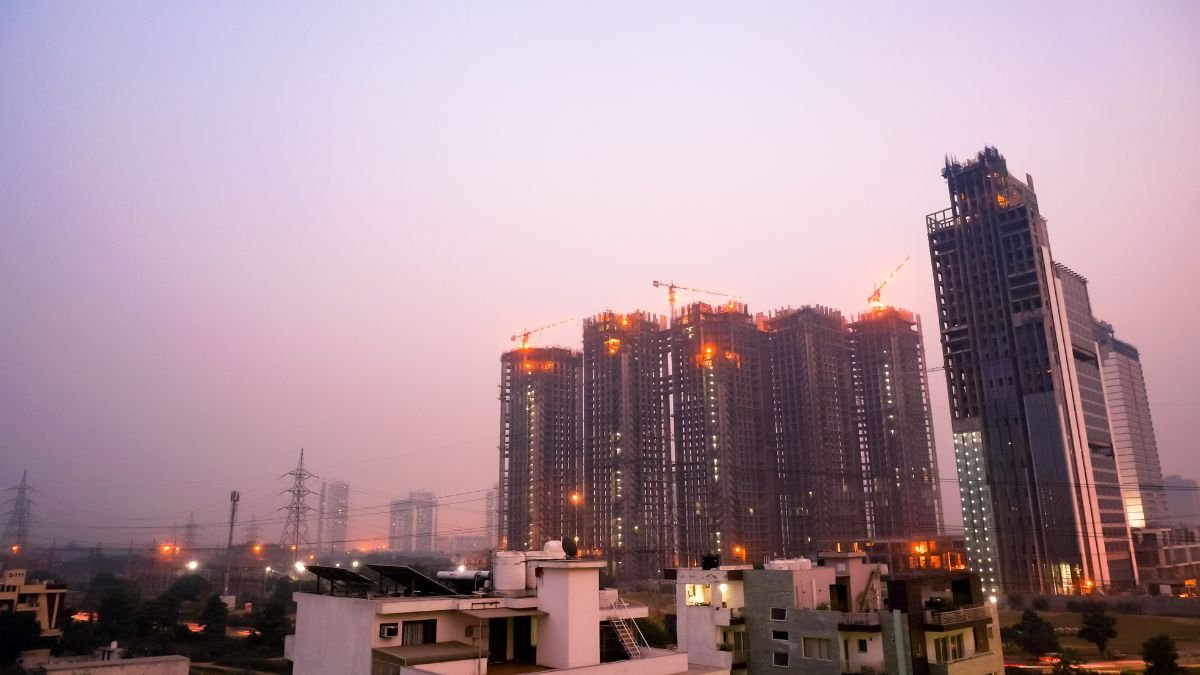Introduction
The Indian real estate market has long been an attractive destination for Non-Resident Indians (NRIs) looking to invest in property. Among the various cities that have witnessed substantial growth and development, Gurgaon, now known as Gurugram, has emerged as a top choice for NRI investors. With its proximity to the national capital, excellent infrastructure, and booming commercial sector, Gurgaon offers a plethora of opportunities for NRIs seeking to invest in real estate. This comprehensive guide with valuable tips for NRIs looking to invest in Gurgaon’s real estate market from abroad will delve deep into various aspects of property investment, regulations, market trends, and financial considerations, providing a thorough understanding for potential investors.
1. Understand the Indian Real Estate Market
Before diving into the specifics of Gurgaon, it’s crucial for NRIs to gain a broad understanding of the Indian real estate market. The market is influenced by various factors, including economic trends, government policies, and local dynamics. Understanding these elements will help NRIs make informed investment decisions.
1.1 Economic Trends
To gain a comprehensive understanding of the Indian real estate market, it’s essential to monitor economic trends. India’s economic growth, inflation rates, and employment figures have a direct impact on the real estate sector.
Over the past decade, India has experienced steady economic growth, making it an attractive destination for real estate investments. A strong and growing economy typically leads to a robust real estate market. It signifies increased demand for residential, commercial, and industrial properties.
Additionally, India’s rising middle class and urbanization trends contribute to the demand for housing and commercial spaces. These factors create an environment conducive to real estate investment.
1.2 Government Policies
Indian real estate is subject to various regulatory changes and policies, and these can significantly affect investment decisions. Staying updated on policies related to foreign investment, property taxes, and repatriation of funds is crucial for NRIs.
1.2.1 Foreign Direct Investment (FDI): The Indian government has liberalized FDI policies in recent years to encourage foreign investments in the real estate sector. NRIs can benefit from these policies when investing in real estate.
1.2.2 Goods and Services Tax (GST): GST has replaced multiple indirect taxes, streamlining the tax system in India. Understanding the GST implications on property transactions is vital for NRIs.
1.2.3 RERA (Real Estate Regulation and Development Act): RERA is a regulatory body established to protect the interests of property buyers. It’s essential for NRIs to understand RERA guidelines and ensure that the property they intend to invest in complies with its regulations.
1.2.4 Property Ownership Regulations: NRIs should be aware of the regulations regarding property ownership, which can vary depending on the type of property and its location. Regulations differ for residential, commercial, and agricultural properties.
1.3 Local Dynamics
Each city and region in India has its own real estate dynamics. Factors like supply and demand, infrastructure development, and industrial growth can significantly impact property values.
Understanding local dynamics is particularly crucial for Gurgaon, as it has distinct micro-markets within the city:
1.3.1 Cyber City and Cyber Hub: Known as Gurgaon’s IT and corporate hub, Cyber City and Cyber Hub attract businesses, professionals, and residents alike. Investing in residential or commercial properties in these areas can yield promising returns due to their high demand.
1.3.2 Golf Course Road: Golf Course Road is known for its upscale residential properties and proximity to business centers. It’s a prime location for NRIs looking for luxurious living or high-end commercial investments.
1.3.3 Dwarka Expressway: This area is witnessing rapid infrastructure development and is expected to be a significant growth corridor in the coming years. Investing in residential properties along Dwarka Expressway can be a long-term strategy for NRIs.
2. Choose the Right Location
Gurgaon is known for its diverse neighborhoods, and selecting the right location is crucial for a successful real estate investment. Here are some considerations:
2.1 Connectivity
Gurgaon’s proximity to Delhi, the national capital, has made it a hotspot for real estate. Ensure the property you choose is well-connected to major highways, the metro, and the international airport.
Connectivity is a key driver of property appreciation. Properties located near transportation hubs and major roads tend to see higher demand and price growth.
2.2 Emerging Sectors
Investigate emerging sectors in Gurgaon, such as Cyber City, Golf Course Road, and Dwarka Expressway, where property values are expected to appreciate due to ongoing developments.
1.3.1 Cyber City and Cyber Hub: As mentioned earlier, these areas are already established as IT and corporate hubs. However, ongoing developments and infrastructure improvements continue to drive up property values.
1.3.2 Golf Course Road Extension: The extension of Golf Course Road is emerging as a promising area for both residential and commercial investments. It offers a blend of connectivity, amenities, and upscale living.
1.3.3 Dwarka Expressway: This sector is still evolving, making it a potential hotspot for investors looking for long-term gains. Infrastructure projects like the Dwarka Expressway are expected to unlock the area’s potential.
2.3 Amenities
Look for neighborhoods with good schools, hospitals, shopping centers, and recreational facilities to ensure a comfortable living environment. Proximity to these amenities not only enhances the quality of life for residents but also makes the property more attractive to potential tenants or buyers.
2.3.1 Schools: Gurgaon has a wide range of international and reputable schools. Investing in a property near a well-regarded school can be a strategic move, as it appeals to families.
2.3.2 Healthcare Facilities: Access to quality healthcare is a critical consideration. Gurgaon boasts world-class hospitals and healthcare centers, making it an ideal location for NRIs seeking medical facilities.
2.3.3 Shopping and Recreation: The city offers an array of shopping malls, restaurants, and recreational options. Investing in areas with a vibrant lifestyle and entertainment scene can be appealing to a diverse tenant or buyer pool.
3. Legal Aspects of Property Purchase
Understanding the legal aspects of property acquisition is essential for NRIs looking to invest in Gurgaon’s real estate market. India has specific regulations and requirements for property ownership by NRIs.
3.1 Eligibility
NRIs are eligible to purchase both residential and commercial properties in India. However, certain restrictions may apply to agricultural land, plantations, and farmhouses. It’s crucial to ensure you meet the eligibility criteria for the type of property you intend to purchase.
1.3.1 Residential Properties: NRIs can buy residential properties without any restrictions. There is no maximum limit on the number of residential properties that NRIs can own.
1.3.2 Commercial Properties: NRIs can invest in commercial properties as well. They can purchase office spaces, retail outlets, warehouses, and other commercial real estate.
1.3.3 Agricultural Land: NRIs are generally not allowed to buy agricultural land in India unless they inherit it.
3.2 Documentation
The paperwork involved in property transactions in India can be extensive. It’s highly advisable to consult with a local lawyer or real estate expert to navigate the legal aspects of property acquisition. The following are key documents and processes to be aware of:
3.2.1 Sale Deed: This document is essential for property transfer and establishes the buyer’s ownership rights. It must be executed on a non-judicial stamp paper and registered at the sub-registrar’s office.
3.2.2 Title Verification: Ensuring a clear title is crucial. Conduct a thorough title search to confirm that the property has a clean and marketable title, free from any encumbrances or disputes.
3.2.3 Due Diligence: Due diligence involves verifying the property’s ownership, land use, and compliance with local regulations. It’s advisable to hire a legal expert or property consultant for this purpose.
3.2.4 Encumbrance Certificate: This certificate provides information about any registered mortgages or legal claims on the property. It’s crucial to obtain this document to ensure the property is free from liabilities.
3.2.5 Non-Encumbrance Certificate: This certificate confirms that the property is not subject to any legal disputes or pending litigation.
3.3 Power of Attorney
Appointing a trusted representative in India through a Power of Attorney (POA) can simplify the property buying process for NRIs. A POA grants the designated person the authority to carry out various tasks on your behalf, including property registration, signing documents, and completing financial transactions.
A registered POA can be invaluable for NRIs who cannot be physically present in India during the property purchase process. It streamlines the administrative procedures and ensures a smooth transaction.
4. Funding Your Investment
Financing your real estate investment is a crucial step. NRIs can use both foreign and Indian sources for funding:
4.1 NRE (Non-Resident External) and NRO (Non-Resident Ordinary) Accounts
NRIs can open NRE and NRO accounts in India to manage their funds in Indian rupees. These accounts serve different purposes:
4.1.1 NRE Account: A Non-Resident External (NRE) account is ideal for repatriable investments. NRIs can deposit and withdraw foreign currency, and the funds are freely repatriable. This means that you can transfer both the principal amount and the interest earned back to your overseas account.
4.1.2 NRO Account: A Non-Resident Ordinary (NRO) account is suitable for non-repatriable investments. It allows you to manage your Indian income and earnings within India. While you can repatriate up to $1 million per financial year from your NRO account, there are restrictions on the repatriation of the interest earned.
4.2 Home Loans
Many Indian banks and financial institutions offer home loans to NRIs for purchasing property. Here are some key considerations for NRIs seeking home loans:
4.2.1 Eligibility: Lenders have specific eligibility criteria for NRIs, including income, credit history, and employment status. Ensure that you meet these criteria before applying for a home loan.
4.2.2 Loan Amount: The loan amount you can avail of depends on various factors, including your income, loan tenure, and the lender’s policies. Typically, banks offer up to 80% of the property’s value as a home loan.
4.2.3 Interest Rates: Compare loan terms, interest rates, and eligibility criteria across different banks to find the most suitable option. Interest rates may vary based on the lender and the type of loan (fixed or floating).
4.2.4 Repayment Options: Lenders offer flexible repayment options, including Equated Monthly Installments (EMIs) and step-up or step-down repayment plans. Choose a plan that aligns with your financial goals.
4.3 External Commercial Borrowings (ECB)
NRIs can also consider raising funds through External Commercial Borrowings (ECB) for property investments, provided they comply with Reserve Bank of India (RBI) regulations. ECBs are commercial loans availed by Indian companies and are subject to specific terms and conditions.
Before considering ECBs, it’s essential to consult with financial experts and legal advisors to ensure compliance with RBI guidelines and evaluate the feasibility of this funding option.
5. Tax Implications
Understanding the tax implications of your real estate investment is essential to maximize returns and ensure compliance with Indian tax laws. The Indian taxation system has specific provisions related to property ownership and transactions:
5.1 Property Tax
NRIs are subject to property tax in India, which varies from state to state and is typically levied by municipal authorities. Property tax is an annual tax that property owners must pay based on the property’s assessed value. It’s essential for NRIs to be aware of the local property tax rates in Gurgaon and factor them into their investment calculations.
5.2 Capital Gains Tax
Capital gains tax is applicable when NRIs decide to sell their property. The tax rate depends on the duration of ownership and other factors:
5.2.1 Short-Term Capital Gains (STCG): If the property is sold within two years of acquisition, it is considered a short-term capital asset. NRIs are subject to a tax rate of 30% on the gains. Additionally, the seller must pay cess and surcharge.
5.2.2 Long-Term Capital Gains (LTCG): If the property is held for more than two years before selling, it qualifies as a long-term capital asset. The LTCG tax rate is 20%, with indexation benefits available. NRIs can also claim exemptions by reinvesting the gains in specified bonds or properties.
5.2.3 TDS (Tax Deducted at Source): When an NRI sells a property, the buyer is required to deduct TDS at the applicable rate. NRIs must obtain a Tax Deduction and Collection Account Number (TAN) and follow the TDS process as per Indian tax regulations.
Conclusion
Investing in Gurgaon’s real estate market can be a lucrative opportunity for NRIs, but it requires careful planning and a thorough understanding of the market’s nuances. By following the tips and guidelines outlined in this comprehensive guide, NRIs can make informed decisions and navigate the complexities of investing in Gurgaon from abroad. Whether it’s understanding economic trends, complying with government regulations, choosing the right location, or managing finances efficiently, NRIs can embark on their real estate journey in Gurgaon with confidence. With its strategic location, thriving economy, and dynamic real estate landscape, Gurgaon offers a promising canvas for NRIs to paint their investment success story.





Join The Discussion